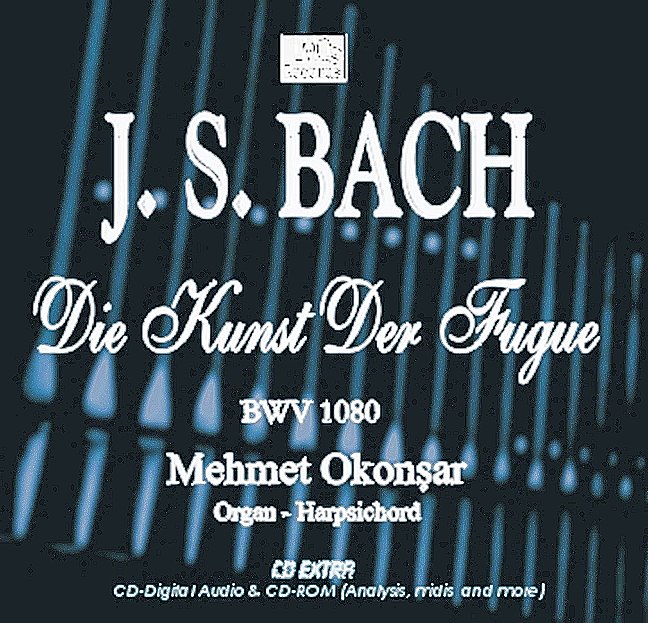
Summary Of Musica Judaica - Jewish Music Introduction
Straight
forward information about Jewish Music and songs, its main types.
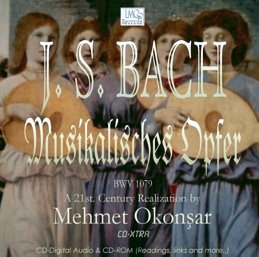
J.S. Bach "Musikalische Opfer"
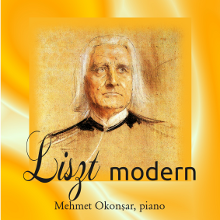
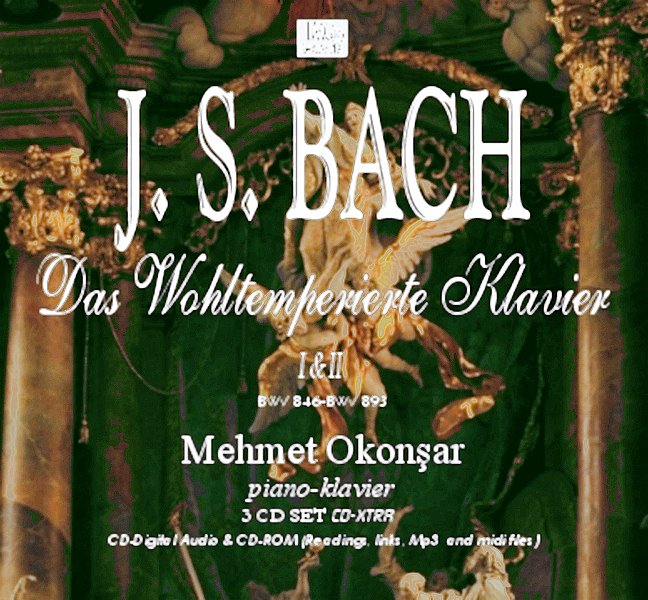
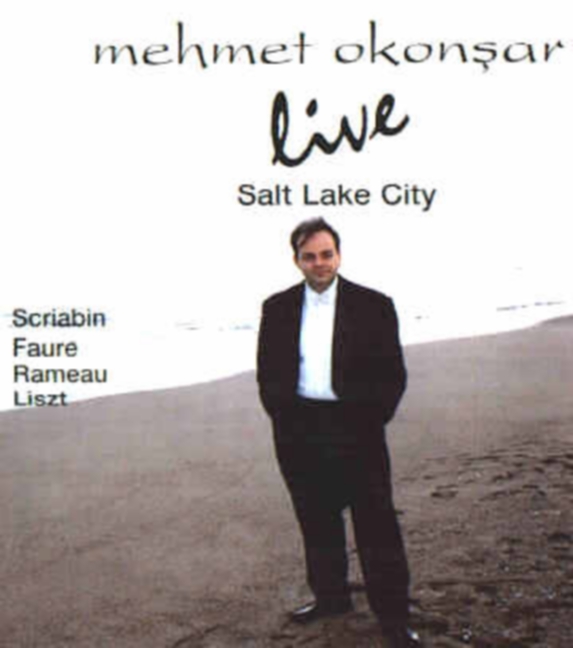
Recital: "Live at Salt Lake City"

J.S. Bach The Goldberg Variations

Piano Solo Improvisations: "Shadowy Arcade"
All CD's can be auditioned entirely and freely at their respective pages. Click on the images.

J.S. Bach The Goldberg Variations

Piano Solo Improvisations: "Shadowy Arcade"
All CD's can be auditioned entirely and freely at their respective pages. Click on the images.
In quite a few instances, Judaic melodies are certainly faith based, non secular tunes while in other times, they are actually of extra-religious style.
The rhythm-structure as well as music of Hebraic tunes change genuinely dependent about the roots associated with the Judaic music composer and also the period of time throughout that the musical creation was basically penned.
As Velvel Pasternak informs, "The importance of popular music throughout the life that belong to the Hebraic most people is definitely observed practically at the beginning of Genesis... [musicians are] mentioned among three fundamental jobs... Songs had been seen as one must have inside everyday living, as one enhancing as well as enriching complement of human existence."
The history of religious Hebraic popular music spans the evolution of cantorial, synagogal, as well as Salomon's Temple melodies through Biblical to Modern times.
The earliest synagogal songs had been dependent on the same system used throughout the Temple of Jerusalem. According to the Mishna, the regular Salomon's Temple orchestra consisted of twelve musical instruments, and also a particular choir of twelve male singers.
One particular variety of musical instruments had been branded to the ancient Israelites, though they are certainly not included throughout the regular orchestra that belong to the Solomon's Temple in Jerusalem: the "uggav".
Though researchers do not completely agree what precisely the "Uggav" was, a few are convinced that the widely known interpreter Unkelus who translated scriptures into Aramaic, as well as other biblical historians are correct explaining that this musical instrument had been the pan flute or panpipes.
Following the destruction of the Temple of Jerusalem as well as the subsequent diaspora that belong to the Israeli people, popular music has been initially banned inside Babylon and even Persia.
This law had an exception on Sabbath (i.e. the Chabat), during that, Judaic people have been required to sing together with their family, later, virtually all restrictions have been relaxed. As it is definitely recorded in Psalm 137; "Our tormentors [the Babylonians] asked of us, sings us one associated with the tunes of Zion... How shall we sing the Lord's song...?."
Jewish music started to take shape with the liturgical poems: "piyyutim". The songs may have preserved one few key phrases within the reading of Scriptures that recalled melodies right from the Salomon's Temple itself (Ashkenazim Jews named this official tune the "trope") nonetheless, generally it echoes the tones and even rhythms, within each country in addition to inside each time period, within that Jews lived, not by merely borrowing the tunes more getting within the tonality on those local tunes had been designed.
Faith based Hebraic Tunes throughout the twentieth century changed profoundly. It seems they have widened covering the gamut starting from Shlomo Carlebach's "nigunim" to Debbie Friedman's Hebraic activist and feminist popular music genres.
Velvel Pasternak has got committed on paper the majority of the later part of the twentieth century, acting as a particular conservationist as well as classifying just what had been one extremely unwritten custom. In the 1970s, Abie Rottenburg, Avrohom Fried, Mordechai Ben David, as well as Israeli boys choirs such as London "Pirchei" of Yigal Calek gained fame.
Most of Hassidic Hebraic melodies are certainly performed by men due to non secular restrictions on men hearing women sing. In the 1980s, "Tofa'ah" was basically the 1st women's traditional music group as well as it has got paved the road with regard to Hassidic Hebraic feminine performers.
One particular large amount of popular music created by the Hassidic Jews is certainly aimed toward mentoring spiritual as well as ethical traditions and even principles. The vocals of these kinds of tunes are usually either throughout English or Hebrew, ordinarily working with important phrases straight from the Judaic prayerbook.
Many of present-day "Hazzanim" are members of the Cantors Assembly that teaches as well as publishes Israeli liturgy and melodies.
Sporadically Israeli music and songs jumps into general population attention. Certainly one of this is definitely the reggae musician Matisyahu.
Basic sorts of Judaic non secular tunes are "Piyyutim", "Zemiros", "Nigunim", "Pizmonim" in addition to "Baqashot". They are very succinctly covered here.
"Piyyut" is a Hebraic poem to be chanted, recited, sung on non secular, religious rituals.
Zemiros are typically Hebraic hymns, usually sung within the Hebrew or Aramaic languages, however, sometimes simultaneously within Yiddish or Ladino. A bit of that belong to the Shabbos zemiros that are specific to certain times associated with the day, such those sung with regard to the Friday evening meal, the Saturday noon meal, in addition to the third Sabbath meal just before sundown on Saturday afternoon.
"Nigun" refers to religious melodies that are sung by groups. It is without question one form of voice-instrumental popular music, frequently without any words or words.
"Pizmonim" are typically traditional Hebraic tunes as well as melodies along with the intentions of praising God as well as describing certain aspects of traditional non secular teachings. "Pizmonim" are chanted in non secular rituals and even festivities such as weddings, circumcisions, bar mitzvahs.
The "Baqashot" are usually a particular collection of supplications, tunes, as well as prayers that have been sung during centuries according to the Sephardi Aleppian Judaic community and even other congregations every and every Sabbath morning right from midnight till dawn. From the turn associated with the twentieth century, Baqashot had become one widespread spiritual practice inside several communities inside Jerusalem as a particular one communal form of prayer.
Usage rights:
You can use
this article under the Creative Commons License CC-BY. This license
lets you distribute, remix, tweak, and build upon my work, even
commercially, as long as you credit me, by displaying the information
on me given below verbatim for
the original article.
Mehmet
Okonsar is a
pianist-composer-conductor and musicologist. Besides his international
concert carrier he is a prolific writer. Founder of the first classical
music-musicology dedicated blog-site: "inventor-musicae"
as well as the first classical-music video portal: "classical videos".
